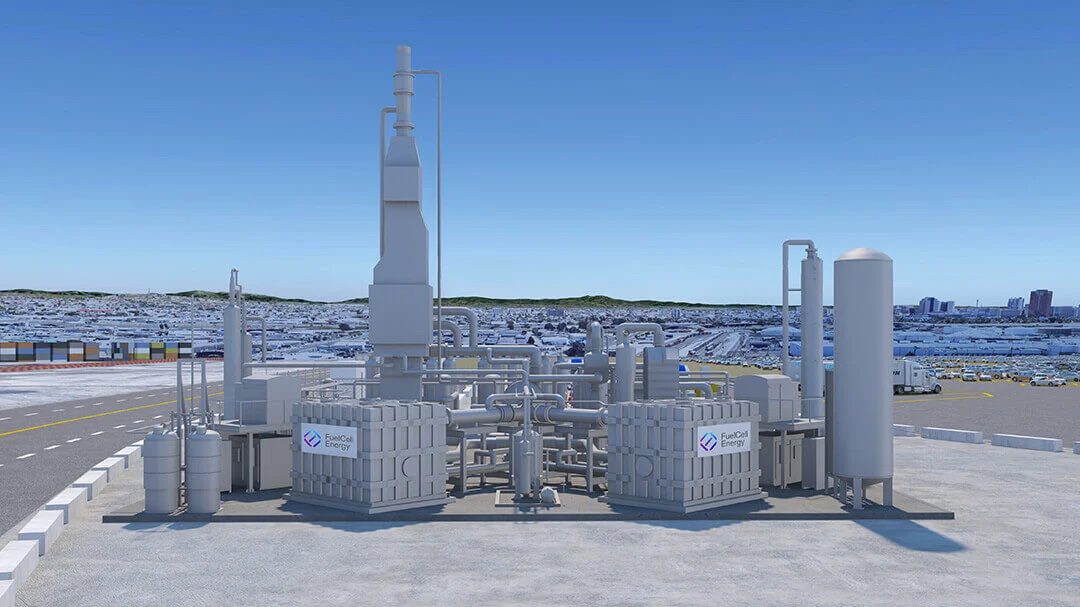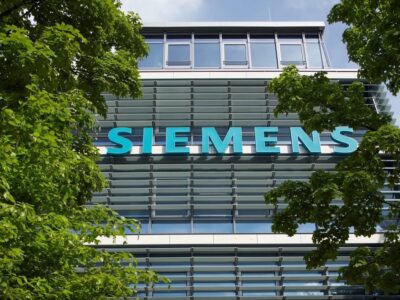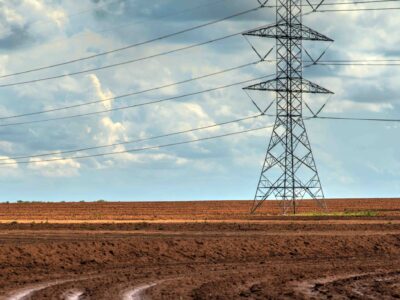(Bloomberg) —
Each year, 200,000 new cars and trucks roll off ships at the Port of Long Beach in Southern California for processing at Toyota Motor Corp.’s largest North American import facility.
Surrounded by vast parking lots, Toyota Logistics Services is the only US entry point for the Mirai, a sedan powered by hydrogen rather than gasoline or a battery. Those cars need hydrogen before they’re trucked off to dealerships, not to mention water for a wash. And the facility itself, with 230 employees, needs electricity.
A new kind of power plant will supply all three.
Designed by FuelCell Energy Inc., the Tri-gen plant tucked into one of those parking lots will feed biogas into high-temperature fuel cells, producing power, water and hydrogen all at once. Construction has wrapped up and the companies plan to flip the switch this year, with Toyota Motor North America Inc. signing a 20-year agreement to buy the plant’s three products. Financial details have not been disclosed.
Read More: Why Hydrogen Is the Hottest Thing in Green Energy
Planned for years, the Tri-gen plant will enter operations just as the US government pushes to create hydrogen hubs across the country as a way to fight climate change. When burned in turbines or fed through fuel cells, hydrogen can produce power without carbon emissions, and the hubs are intended to pair hydrogen producers with nearby customers who can use the fuel. Tri-gen will function like a miniature hub of its own.
“What makes this project so compelling is it’s a perfect example of how the hydrogen economy can unfold,” said Jason Few, FuelCell’s chief executive officer.
For Toyota, the plant will help decarbonize its facility, potentially serving as a model to be duplicated elsewhere. Tri-gen’s biogas, piped to the site, comes from agricultural waste, and the plant’s 2.3 megawatts of electricity will be more than the Toyota facility needs. The remainder will go to the local power grid, while the 1,400 gallons of water made daily will wash cars before delivery to dealerships.
Up to 1,200 kilograms of hydrogen produced every day will fuel not just imported Mirais but hydrogen-powered trucks at the port, which has been working for years to cut its air pollution. It will be Toyota’s first port facility powered entirely by renewable energy generated on site.
Tri-gen could also provide FuelCell, based in Danbury, Connecticut, a boost. Founded in 1969, FuelCell helped commercialize fuel cells, devices that generate electricity through an electro-chemical reaction rather than combustion.
At its peak in 2000, FuelCell’s market value topped $1.5 billion. But fuel cells took decades to go mainstream, and when they finally did, rivals such as Bloom Energy Corp. were able to seize bigger pieces of the market. FuelCell underwent a major restructuring in 2019, bringing in Few as chief executive. The company is scheduled to report earnings Sept. 11.
© 2023 Bloomberg L.P.





